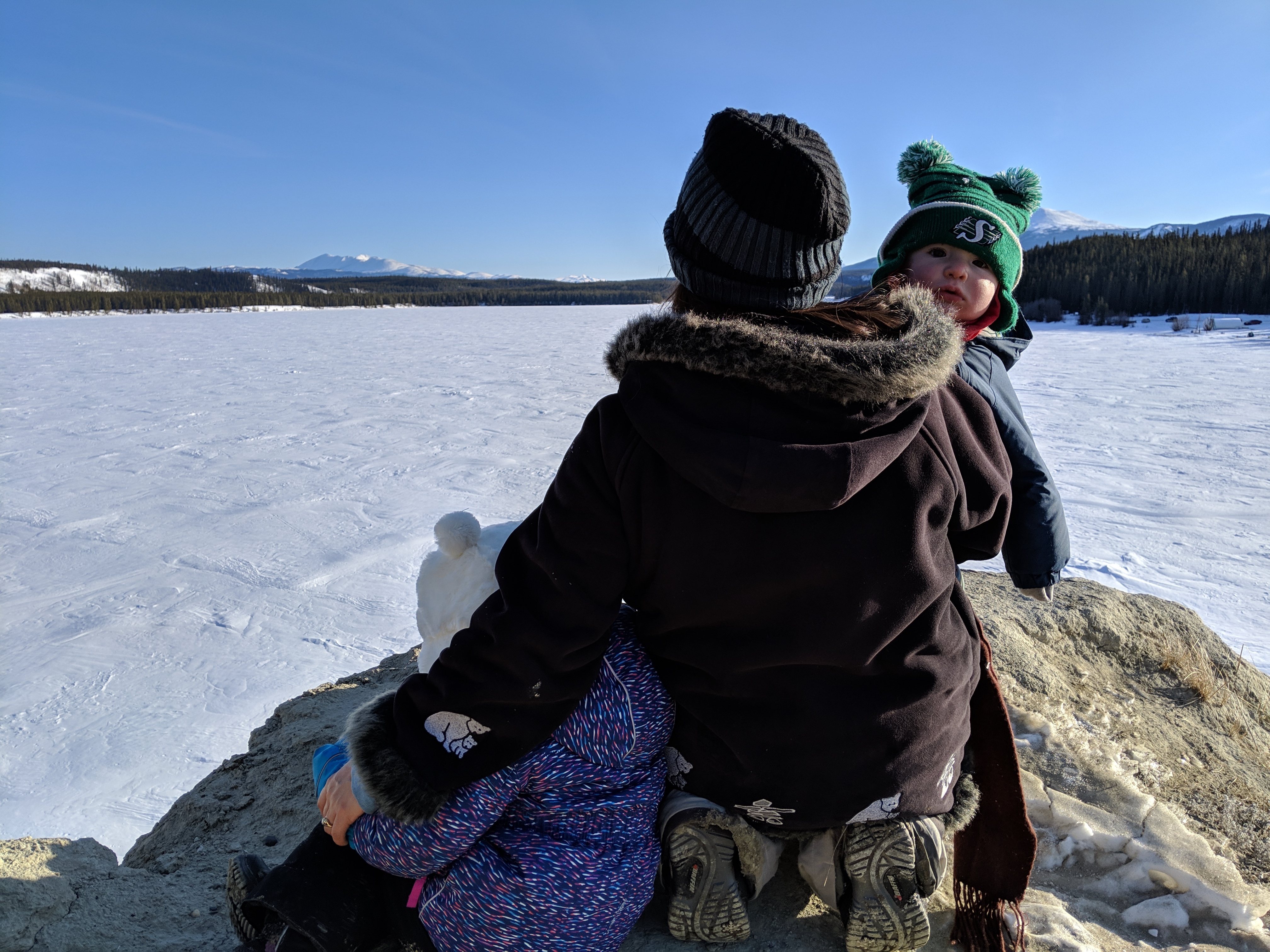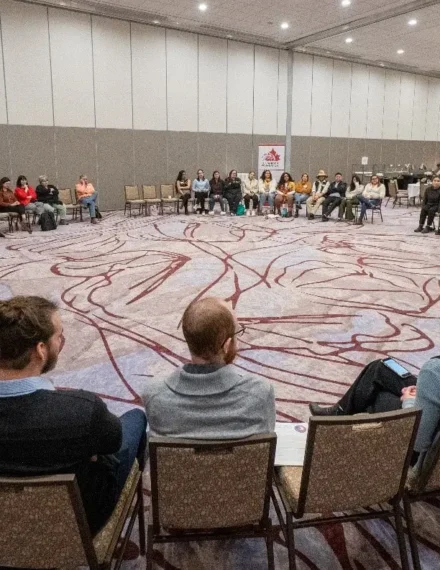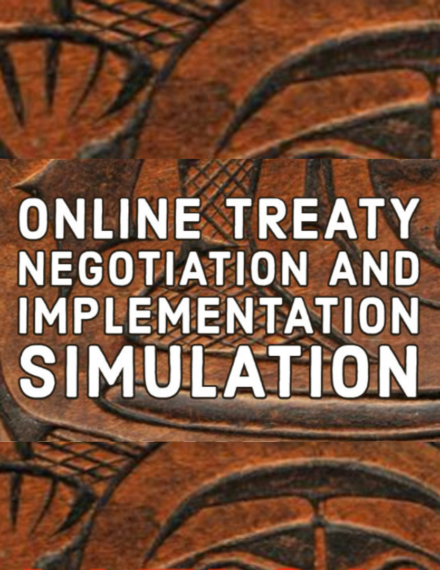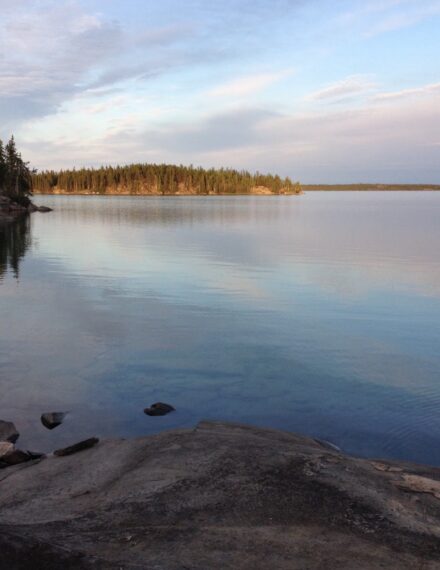
Jocelyn Joe-Strack is a Champagne and Aishihik First Nations scientist. During February 2019, she embarked on a speaking tour of Canadian embassies in Europe to sharing her Indigenous perspective on Climate Change with senior diplomats, academics, youth and the public. She is a 2012 Alumna of the Jane Glassco Northern Fellowship program.
We are home.
Upon my return to the Yukon, I have had further opportunity to reflect and digest the significance of our European journey. In sharing with so many people and learning about the challenges facing great cities, I come away with increased gratitude for the brilliant quiet of late winter.
March is one of the most beautiful months in the subarctic. It has been -25˚C in the morning; warming to -8˚C with the lengthening sun. My family and I took a rejuvenating walk yesterday. As the end of our overseas adventure neared, I started to dream of home and the fresh crisp snow air. I love winter. My girl made cakes out of the snow crust and decorated them with sticks then topped them with sugar snow. Imaginary deliciousness.

My mind cleared after our hike. While trotting up the hills holding my baby and dragging her sled, I was finally able to slow and appreciate my experience: I was asked to travel to Europe to share an Indigenous perspective of climate change.
What I presented was an understanding that climate change is not our greatest threat. Instead, our adoption of the values and morals of modern civilization has led to our current state of vulnerability. It was about how we continue to mar Earth, the sky, the land, the sea and the core. And yet humanity continues to expect more – more development, more economic wealth more convenience. But I’m not sure this means more freedom or more happiness.
In no place is this dichotomy more apparent than in the big cities where people have been removed from harmony with Earth for generations. Fortunately, Indigenous people do remember. Our harmony is rooted in our honour for all nature’s beings as equal and alive with spirit. Our ancestors walk among the trees, the water heals us, fire cleanses us and the air connects us, the animals are our brothers and sisters and we respect all creation as true kin.
Today, as we overcome past trauma and reclaim our spirit and autonomy, we are seeking new ways to move forward outside of government mandates and programs. In this journey, we are learning how to wield the wisdom of our ancestors along with the best available modern tools to fulfill our vision and safeguard Earth for generations to come.
I was humbled that the audiences and people I met were often inspired after sharing our brief time. I was moved by their tears and their thanks. One lovely woman expressed her gratitude as she felt I shared a little of my own “peace.” I think I calmed people. That was the gift I gave – a short period presence and calm.

Jocelyn Joe-Strack teaches a workshop in Germany (Feb. 2019)
Calm, I believe, is a trait of my family and people. I have several relatives who reflect as they speak and deliver their thoughts with eloquent emotion and sereneness. I am proud to be a carrier of this way of being. It’s difficult to make such a general statement about one’s family, but when I consider where I inherited my manner from, I do think this way of calm is from my First Nation’s family.
I believe our calm evolved from our connection with the forest and nature. I believe the natural state of people is to be present and content and this condition is obtained through our evolutionary connection as one of nature. People evolved with nature as bees have with flowers.
In my home we can still recognize what our absence as caretakers of the land has resulted in. We no longer trap the beavers, therefore many of our once clear lakes have become marshier. We no longer regularly fish the lakes and some are crowded or the fish are all small.
What if the bees decided they no longer needed flowers? We know now, in our fear over declining bee populations due to pesticide use, that the flowers need the bees. Well, the forest, the oceans and the Earth need us. But it is as if we’ve forgotten how to carry pollen.
I shared on my journey, that after five days in the forest one is able to walk with effortless calm and presence. It becomes an organic, natural state. This was the constant state of my ancestors. Some people in the world’s great cities never get to experience even one day of natural peace.
It is not only peace the forest offers, but also clarity and grounding. I feel time in the forest allows one to clear their mind and better understand their inner being and inherent purpose. For myself, I have always healed and sought solace in the forest. It is the home of my strength. I offer it is the original home of strength for all people worldwide.
So how is it that the vast majority of Earth’s population lives without the fundamental support of Earth?
I guess Earth has become foreign – although we all live here. Support which used to come from nature, is now sought in materialism, pop culture and economic development. However, this foundation is not real to one’s soul and therefore, cannot foster wholeness. People need nature to be their true and best selves. I state this as a fact. It is a fact that Indigenous people recognize, that is why in the UN Declaration of Rights of Indigenous People, maintained connection to nature as a part of culture is critical.
Just because urban cultures do not directly rely on the forest doesn’t mean that these populations are any less in need of it. In fact, I think they are more in need of it that any other population on Earth. However, how can all of the world have a right to a relationship with organic whole nature in order to live whole peaceful lives? Big question.
The modern need for ongoing development is Earth’s hurt, climate change, plastic, fossil fuels. We know this. But I believe it is humanity’s removal from nature that has set us on a course towards development for fulfillment rather than striving towards contentment and peace.
I believe there is great hope in the Indigenous journey to reorient our notion of prosperity towards living as whole people. During my journey, I heard dissatisfaction with current societal expectations along with uncertainty of how to obtain an alternative. But that is exactly what Indigenous people are doing. Shifting the goals, evolving bureaucracy and envisioning happier lives for tomorrow’s children.

Perhaps this is a part of my new purpose. To assist in the articulation of the Indigenous advantage for all people, especially those in the city. That the lessons of our ancestors are for humanity as a whole, not just the oppressed, healing and leading.
Certainly, this experience has shifted my PhD ambitions to recognize my message is for us all, not just my community. This new direction feels better as that is also the way of my people. Even our Land Claim and Self-Government Agreements, they were never just for us. They were always for all Yukoners, Canadians and Nations looking to a better tomorrow for our children. I could not ask for a better purpose.
Much thanks and appreciation for sharing my journey. Shäw nithan to the Gordon Foundation for supporting this tour and communications, Champagne and Aishihik First Nation, University of Saskatchewan and the Embassies of Canada to Spain, Sweden, Germany and France. I would especially like to thank my hosts while in each of these great cities. I met several intelligent, thoughtful and lovely people while visiting each city who helped me better understand the place I was in the impact of my presentations. I am truly grateful for my time with them.
Jocelyn Joe-Strack is a Champagne and Aishihik First Nations scientist. She is a 2012 Alumna of the Jane Glassco Northern Fellowship program.
During February 2019, she embarked on a speaking tour of Canadian embassies in Europe to share her Indigenous perspective on climate change with senior diplomats, academics, youth and the public. You can follow her travels her, on Twitter @GlasscoFellows or @jocelynjs or by subscribing to The Gordon Foundation newsletter for updates.
Blog 1: An Invitation To Europe
Blog 3: Taking Time To Reflect
Blog 4: Reflections from Picasso
Blog 5: Indigenous reconciliation
Blog 6: Science, Reindeer & Knowledge


